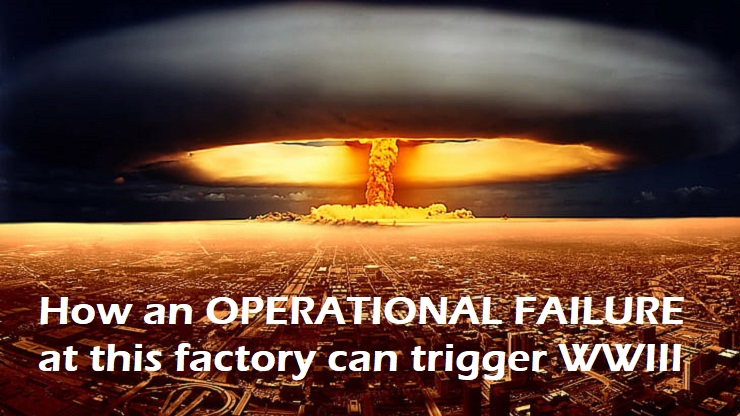Imagine a single factory so critical to the global economy that its disruption could spark international conflict. This isn’t a distant fantasy, but a real possibility tied to one of the most vital industries on the planet. The stakes are higher than you think – what happens if an operational failure at this factory leads to a global crisis? Some analysts warn that such an event could even ignite the next world war. Dive into the world of high-tech manufacturing, where technology, politics, and global stability collide.
As tensions rise between global superpowers, all eyes are on Taiwan, the playing field where technology and geopolitics intersect. This small island nation holds the key to one of the most critical industries in the world. The factory in question isn’t just about producing advanced technology – it’s about safeguarding global power dynamics. What would happen if a single operational failure here sent shockwaves through the global supply chain? The delicate balance of power could shift, drawing nations into a conflict none are prepared for.
Taiwan Semiconductor Manufacturing Company (TSMC) is a global leader in semiconductor manufacturing, specializing in producing chips for various industries, including smartphones, computers, and automobiles. TSMC doesn’t design its own chips but focuses on manufacturing for other companies, making it the backbone of the global tech industry. It works with well-known brands such as Apple, Nvidia, and Qualcomm, which rely on TSMC for high-performance chips.
What makes TSMC stand out is its advanced technology, particularly its cutting-edge 3-nanometer (nm) process. This technology allows them to produce smaller, faster, and more energy-efficient chips. Compared to competitors like Intel and Samsung, TSMC leads in terms of innovation and volume production. This has made TSMC a critical player, especially in the global chip shortage caused by increased demand during the pandemic and supply chain disruptions.
The tension caused by U.S.-China trade war and geopolitical uncertainty has led TSMC to diversify its manufacturing plants. Recently, the company started operations in Arizona USA with more plants planned in other countries.
How an Operational Failure Can Take Place
The Nord Stream gas pipeline sabotage during Ukraine-Russia conflict sent shockwaves across the world; a silent yet powerful act of destruction with no one ever claiming responsibility.
What if something similar happened to Taiwan Semiconductor Manufacturing Company (TSMC), not with bombs, but through a cyber attack? The ripple effects would be devastating, throwing global tech industries into chaos.
In the event of a cyber attack disabling TSMC, the stakes for China would be enormous. With its key technologies and factory now transferred to USA, TSMC Taiwanese factories are at greater risk of sabotage. A cyber attack that cripples TSMC would be disastrous for China’s supply of advanced semiconductors, setting back its technological advancements by years.
In such a cyber attack scenario, the balance of power in the tech and military domains could shift dramatically, intensifying geopolitical tensions between these two superpowers. Both nations would be forced to reassess their strategies, and the incident could lead to heightened cybersecurity warfare or even an escalation to nuclear war.
Who would take responsibility for such an attack? The answer is simple : no one. Just as Nord Stream and COVID continue to remain mysteries to date, TSMC too shall forever leave its mark on our world (or whatever remains of it).
Like this article? Leave a comment

